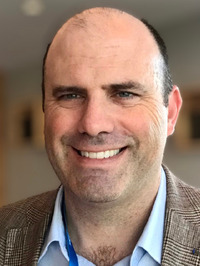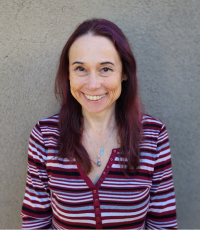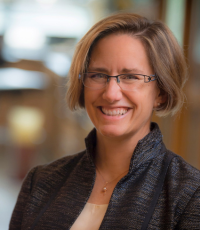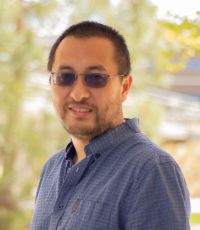UC San Diego Ranked No. 7 Best US Public University by Center for World University Rankings
Awards & Accolades
Five University of California San Diego researchers have been elected 2023 Fellows of the American Association for the Advancement of Science (AAAS), one of the world’s largest general scientific organizations.
Professors Peter Ebenfelt, Robert Heath, Natalia Komarova, Dean Kit Pogliano and Wei Xiong are among 502 scientists, engineers and innovators who have been recognized for their scientifically and socially distinguished achievements by AAAS, publisher of the Science family of journals.
Now in its 150th year, the AAAS Fellows program will celebrate the new class as well as its anniversary milestone at a forum this September. “This year’s class embodies scientific excellence, fosters trust in science throughout the communities they serve, and leads the next generation of scientists while advancing scientific achievements,” AAAS shared in a press release.
Peter Ebenfelt is a Distinguished Professor of Mathematics. He earned his Ph.D. in mathematics from the Royal Institute of Technology (KTH) in Stockholm, where he later became a professor. He joined the faculty at UC San Diego in 2001, where his research has been continuously supported by the National Science Foundation. Ebenfelt has served as chair of the Department of Mathematics and as associate dean for research in the School of Physical Sciences. He is currently the school’s associate dean for faculty advancement and success. Ebenfelt’s research is in complex analysis, complex geometry and partial differential equations. He has authored a textbook and numerous research articles in his field. Ebenfelt is the recipient of the Wallenberg Prize from the Swedish Mathematical Society and the Stefan Bergman Prize from the American Mathematical Society (AMS). He is a foreign member of the Royal Norwegian Society of Sciences and Letters and an AMS Fellow.
Robert W. Heath Jr., a professor in the Department of Electrical and Computer Engineering and the Charles Lee Powell Chair in Wireless Communications, was recognized “for distinguished contributions to the fields of communications and signal processing, particularly for analysis and algorithms for wireless communications in systems with multiple antennas.” Over the past 25 years, Heath has significantly advanced MIMO (multiple-input multiple-output) technology, which uses multiple antennas at both the transmitter and receiver to enhance wireless communication. His research has played a key role in improving data rates and reliability in MIMO communication, enabling it to work well in commercial wireless systems. The techniques that his group developed are now widely used in wireless local area networking systems and 4G/5G cellular standards. Heath, who is the co-inventor on more than 65 U.S. patents, has been named a Fellow of the National Academy of Inventors and a Fellow of the IEEE.
Natalia Komarova holds an M.S. in theoretical physics from Moscow State University and an M.S. and a Ph.D. in applied mathematics from the University of Arizona. She was assistant professor at Rutgers University before moving to UC Irvine in 2004. She joined UC San Diego as professor of mathematics and a Dean’s Scholar in 2024. Komarova’s research interests lie at the interface between mathematical and life sciences, where she formulates interesting questions in areas of biological, medical and behavioral sciences by using the language of mathematics. She believes that fascinating natural phenomena can be translated into interesting mathematical problems. Evolutionary dynamics is a theme that unites the different areas of application, which include cancer modeling, virus dynamics and language evolution. Komarova’s awards include the Prize for Promise and Alfred P. Sloan Research Fellowship, as well as the UC Irvine Senate Distinguished Assistant Professor, Mid-Career Faculty Awards for Research, and the UC Irvine Chancellor’s Professor.
Dean Kit Pogliano played a key role in establishing the field of bacterial cell biology and her research has generated new biological insights and practical applications. She is being honored by AAAS “for distinguished contributions to the development of fluorescent imaging tools for bacteria and for distinguished administrative service to the University of California.” Dean Pogliano’s research has provided insight into the molecular mechanisms by which bacteria localize proteins, generate asymmetry and are dynamically organized during growth, phage infection and spore formation. She co-developed bacterial cytological profiling, a method to rapidly identify antibacterial molecules that has been widely adopted by academia and industry. In 2012, she co-founded Linnaeus Bioscience, Inc., to make the method widely available and accelerate the discovery of new anti-bacterial, anti-mycobacterial and anti-fungal drugs. She is the first woman dean of the School of Biological Sciences, which ranks in the top 10 globally and graduates more underrepresented minorities and female students with biological sciences degrees than any other school in the nation. As dean, she has launched successful initiatives to enhance diversity, promote STEM careers, communicate science to the public and expand access to advanced technologies via the Goeddel Family Technology Sandbox.
Wei Xiong is a professor and Kent Wilson Faculty Scholar in the Department of Chemistry and Biochemistry. He earned his B.S. degree from Peking University in China and his Ph.D. from the University of Wisconsin, Madison. Xiong completed his postdoctoral work at the University of Colorado, Boulder. His early research contributions include pioneering developments in surface sensitive 2D vibrational spectroscopy and table-top extreme ultraviolet (XUV) sources for ultrafast measurements, alongside advancing time-resolved photoelectron spectroscopy for nanoparticle studies. Since joining UC San Diego in 2014, Xiong has focused on demonstrating the ultrafast dynamics of strong light-matter coupling systems, the development of nonlinear spectroscopic and imaging tools for biophysical research, and interfacial spectroscopy to explore molecular structures and femtosecond charge transfer dynamics at interfaces. He has received several prestigious awards for his innovative work, including the Sloan Research Fellowship, the Coblentz Award, a Humboldt Research Fellowship and the Journal of Physical Chemistry C Lectureship.
AAAS first launched this lifetime recognition in 1874, about 25 years after the association was founded. AAAS Members can be considered for the rank of Fellow if nominated by the Steering Committees of the association’s 24 sections across scientific and engineering disciplines, by three Fellows who are current AAAS Members, or by the CEO of AAAS. For the full list of the 2023 AAAS Fellows, visit the AAAS website.
— With information provided by AAAS
Keep up with all the latest from UC San Diego. Subscribe to the newsletter today.




